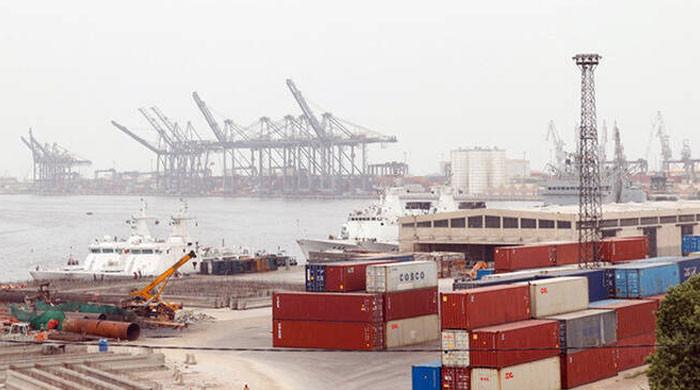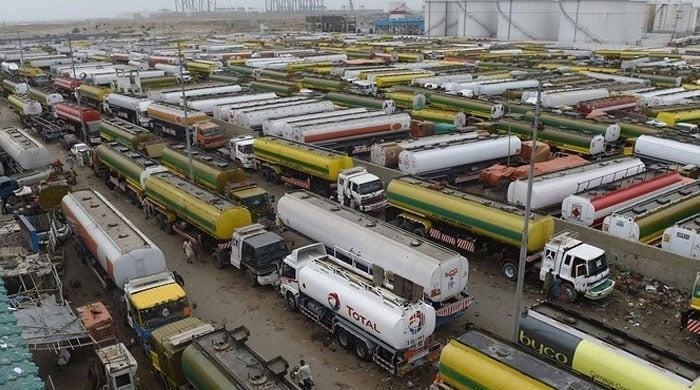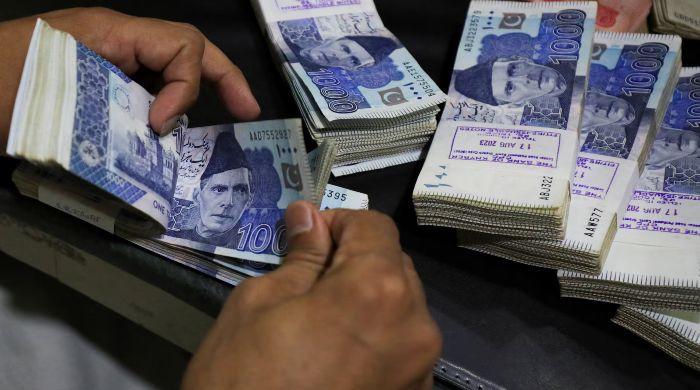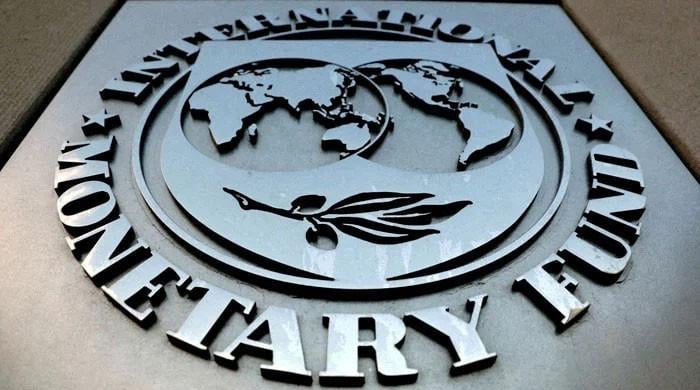IMF directs govt to set up asset disclosure system for officers by year-end
Islamabad requests lender to allow PM Relief Package for flood-hit areas via emergency funds earmarked in budget
September 30, 2025
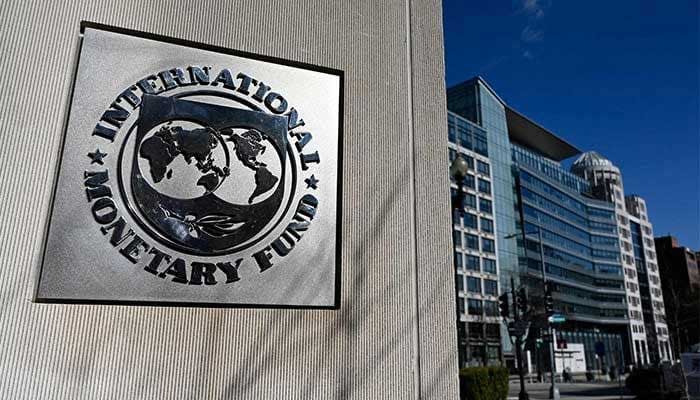
- Officials found submitting false information to face penalties, probe.
- Pakistan, IMF mull revising GDP growth target to 3.9% from 4.2%.
- IMF asks govt to comply with deadline for GCD Report publication.
ISLAMABAD: The visiting International Monetary Fund (IMF) mission has asked Pakistan to comply with the publication of Governance and Corruption Diagnostic Assessment (GCD) Report within the envisaged deadline, The News reported on Tuesday.
Calling for amendment in the Government Servants (Conduct) Rules 1964 allowing actions against those involved in any corrupt practices, the lender has also instructed the government to build a system by December 2025 to ensure the disclosure of assets held by officers from grades 17 to 22.
The development came during the maiden session between the IMF review mission and the Pakistani officials including Finance Minister Muhammad Aurangzeb during which the two sides dwelt upon the revision in the real GDP growth figure from the envisaged target of 4.2% to below 3.9% for the current fiscal year in the context of devastating floods.
On the asset declaration for bureaucrats, the officials told the IMF that the Government Servants (Conduct) Rules 1964 required amendments with the permission of the prime minister and the federal cabinet for allowing asset declarations to be made digitally, which was agreed with the IMF.
The IMF inquired if asset declarations were made public and found any mismatch then who would take action against them. One senior official of the government recommended that this should be granted to the FBR.
However, it was mentioned in the discussion that any wing or agency under the FBR might be assigned this task. However, it was also discussed that any separate agency should be assigned to take action against corrupt officials.
The Washington-based lender has been pressing Islamabad on this issue since last year, but progress has been repeatedly delayed.
The Federal Bureau of Revenue (FBR) has now been been tasked with providing technical assistance to the Establishment Division.
The new mechanism would allow the FBR to flag incorrect or incomplete asset declarations by government officers. Officials found submitting false information would face penalties and formal investigations under the IMF's directives.
The country has nearly 25,000 officers in grades 17 to 22, and there is a widespread perception that many do not accurately declare their holdings.
Compounding the problem, employees of several powerful institutions, including the State Bank, the National Electric Power Regulatory Authority (Nepra), the Oil and Gas Regulatory Authority (Ogra), and the Pakistan Telecommunication Authority (PTA), currently enjoy exemptions from disclosure requirements.
The IMF's demand aims to improve transparency, strengthen accountability, and close loopholes in Pakistan’s governance structure. For years, public scrutiny of senior bureaucrats’ wealth has been limited, fuelling concerns about corruption and misuse of authority.
With the Fund’s pressure mounting, officials say the government will be compelled to take unprecedented steps to bring civil servants’ financial affairs into the public domain, a move likely to face resistance from within the bureaucracy but seen as crucial for restoring public trust.
Flood relief package
During their meeting, the Pakistani requested that the IMF should allow the introduction of a Prime Minister Relief Package for the flood-affected areas through emergency funds already earmarked in the budget for 2025-26. The IMF side asked Pakistan to come up with a Damage and Needs Assessment first, and then any relief package should be granted.
Meanwhile, the lender raised the issue of revenue surplus committed by the provinces to the tune of Rs1.5 trillion in order to curtail the fiscal deficit within the desired limits. Pakistan has committed to the IMF to generate a primary surplus of 2.4% of GDP in the current fiscal year.
The provinces also shared the losses caused by the recent floods, as the Khyber Pakhtunkhwa government's losses were hovering around Rs40 to Rs50 billion. Punjab has not shared its losses, which seem substantial on account of the farm and livestock sector. Keeping in view the revision in the GDP, the losses incurred by agriculture were not massive.
The sources have said that the IMF's GCD Assessment highlighted gaps and weaknesses in public finance management, FBR’s tax system, and AGPR’s efforts to identify loopholes. On the GCD Assessment Report, the sources said that the IMF sought timelines on the recommendations made in this upcoming report.
The IMF's envisaged deadline for publication of the GCD Assessment Report will expire on September 30, 2025, so this report is expected to be published today (Tuesday).
Earlier, the IMF had shared the draft report of the GCD Assessment with the Pakistani side, on which Islamabad had raised serious reservations. Now both the sides have discussed this report in detail, and the IMF wants its publication within the envisaged deadline.
Furthermore, It was also discussed that the Tax Policy Unit (TPU) would be separated from the FBR, and its establishment was at the final stages under the jurisdiction of the Ministry of Finance.
During the opening session of the economic review talks, Finance Minister Aurangzeb briefed the IMF on macroeconomic performance, fiscal discipline, and flood-related damages.
A question was sent to the official spokesman of the Ministry of Finance, but no reply was received till the filing of this report.





